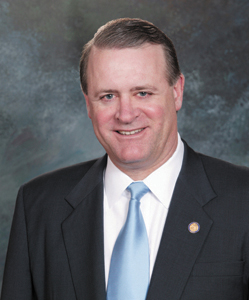STRAIGHT FROM THE SENATE
 Other 2010 Bills of Interest
Other 2010 Bills of Interest
With Little Time and No Money, Legislators Work To Address Concerns of Constituents
STATEHOUSE – With little time and no money, state legislators are still working diligently in the 2010 session to address the concerns of Hoosier constituents. Here are snapshots of bills of interest – some which are lesser known – making their way through the final days of this year’s Indiana General Assembly:
Government Ethics: Senators passed a comprehensive ethics reform package aimed at improving transparency in government and greater accountability over state-elected officials. Senate Bill 114 would create a one-year cooling off period before a retired legislator could become a lobbyist, and would require uniform reporting by all lobbyists. The measure would further reduce the threshold for reported one-time lobbyist expenses from $100 to $50 and reduce the annual total from $500 to $250. Reforms include expanding state registration and reporting requirements to include legislative liaisons of state agencies and universities.
Local Government Reform: Senators again took the lead this year in the effort to streamline local government, passing legislation to reduce layers of government by eliminating township boards and moving township budgeting authority to the county level. Senate Bill 240 also eliminates nepotism by prohibiting township trustees from hiring family members and provides more accessibility to the public by prohibiting a public meeting or hearing of a township official or governing body from being conducted in a private residence.
Independent Research: Senate Bill 84 would allow legislators and the non-partisan Legislative Services Agency to access state-funded research resources at state colleges and universities. The bill also requests that LSA conduct a survey on the feasibility of establishing a division of research and policy development within the agency.
School Funding: A pair of bills aimed at offering school districts flexibility and relief from some of the recent funding cuts are being considered by the full House and Senate. House Bill 1367 and Senate Bill 309 aim to allow school districts flexibility to transfer additional monies from locally supported capital project funds used for construction into state-supported general funds utilized for operations. Current law more tightly restricts these transfers. In return, many lawmakers are asking school employees to follow other public employees in foregoing pay raises for one year.
Child Support: In an effort to collect more than $2 billion in overdue child support payments, Senate lawmakers passed a bill to withhold casino winnings from those who ignore their court-ordered child support obligations. The Indiana Department of Child Services estimates more than 165,000 “deadbeat parents” each owe more than $2,000 in support payments. Colorado passed a similar law in July 2008, collecting more than $320 million in child support payments.
Privacy Rights: Senate lawmakers recently approved Senate Bill 195 to keep private the names, addresses and other identifying information of more than 300,000 Hoosiers with handgun licenses. Indiana would join Ohio, Kentucky and Michigan and 25 other states that protect the identities of gun permit holders.
Adoption: A Senate bill improving Indiana’s adoption laws remains under consideration by the full House of Representatives. Senate Bill 140 would prohibit those convicted of an “attempted” serious felony from adopting and would require attorneys and child placement agencies arranging adoptions to be licensed in Indiana in order to better assure familiarity with our state’s laws.
Producing, Re-Selling Renewable Energy: Lawmakers are considering a bill to provide homeowners, schools and businesses greater financial incentives to produce their own renewable energy. Senate Bill 313 is a net metering policy allowing consumers to use and sell electricity they generate from renewable energy generators – like wind turbines or solar panels – and receive credits from utility companies for unused electricity consumers send to the power grid.
Ag Assessments: Lawmakers are currently discussing a measure aimed at stabilizing Indiana’s agricultural property assessments that farmers say are currently unfair. Senate Bill 396 would use an adjusted rolling average that eliminates the highest and lowest values over a six-year period. Known by economists as the “Olympic Average” technique, the model would give farmers and local governments more stable agricultural property assessments with slower growth and slower declines, but perhaps be more representative of true market value.
Utility Co-Ops: Lawmakers are considering a measure allowing rural telephone and electric cooperatives to merge into single co-ops. Supporters of Senate Bill 126 say merging co-ops could increase the utilities’ management efficiencies and streamline efforts to more cost-effectively bring service to Hoosiers in rural communities.
Sen. David Long (R-Fort Wayne) is President Pro Tem of the Indiana Senate. He serves District 16, which includes portions of Fort Wayne.
- THANK YOU INDIANA, IT HAS BEEN AN HONOR – Straight From The Senate - November 9, 2018
- CYBERSECURITY AWARENESS MONTH – Straight From The Senate - October 26, 2018
- INDIANA’S ECONOMY IS THRIVING – Straight From The Senate - October 12, 2018


